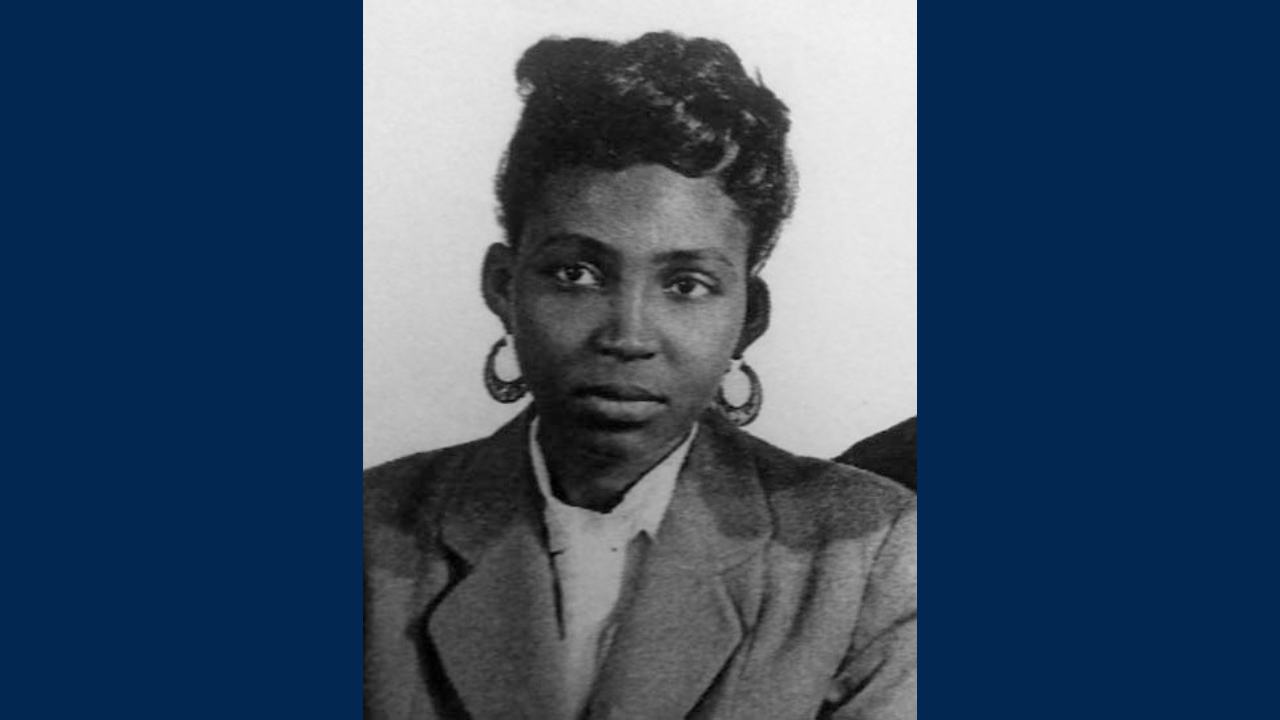
African Literature Scholar Uncovers Forgotten Poem by Influential Senegalese Author and Feminist Mariama Bâ
Sometimes serendipity plays a pivotal role in research. A scholar may sift through an archive seeking something specific but end up discovering something completely unexpected.
For Tobias Warner, an associate professor of French in the College of Letters and Science at UC Davis, such a circumstance was integral to uncovering a forgotten poem written by foundational Senegalese author and feminist Mariama Bâ, who’s most famous for her novels So Long a Letter and Scarlet Song. Bâ, who passed away in 1981 shortly after publishing her breakthrough first novel, has remained an important figure in African literature, despite leaving behind only a handful of published works.
“Sometimes the things that are most exciting are what happens when research doesn’t go according to plan and when it throws something at you that you did not expect,” said Warner.
Serendipity in research

Warner found the poem “Festac…Memories of Lagos” while conducting research for the journal Small Axe. Initially, Warner intended to write an article responding to the book Reimagining Liberation: How Black Women Transformed Citizenship in the French Empire, which was written by scholar Annette Joseph-Gabriel and documents the overlooked contributions of Black women to decolonial movements in the mid-20th century.
Intending to harmonize with Joseph-Gabriel’s research, Warner set his sights on a biography about Bâ written by the late author’s daughter Mame Coumba Ndiaye. While leafing through his well-worn copy of Mariama Bâ; or, The Alleys of Destiny, Warner noticed a reference to a trip Bâ took to the 1977 Second World Black and African Festival of Arts and Culture (FESTAC) in Lagos, Nigeria.
“This is a really major Pan-African gathering that brought together more than 16,000 people from all over the continent and its diaspora,” Warner said. “It puts Bâ in the room with just an incredible range of people who are showing up to this event, and it’s not something that many people knew she was at.”
Intrigued by the finding, Warner requested from the National Library of France anything written by Bâ about FESTAC that would have appeared in L’Ouest-Africain, her husband’s newspaper, which had sponsored her trip. The library didn’t find anything written by a Mariama Bâ about the event. But they did find a poem about the event written by a Mariama Diop. Knowing that Diop was Bâ’s married name, Warner requested a copy of the text.
“When I opened the envelope, I was stunned: not only by the short yet highly evocative poem but also by the photograph of Bâ that ran alongside it,” Warner wrote in a blog about the text.
Vintage Bâ
According to Warner, “Festac…Memories of Lagos” is “vintage Bâ.” The text captures the thoughts of a weary traveler as she arrives in Lagos, travels through the festival, and reflects on its importance for global Black cultures. The poem is one of elucidatory observation, with Bâ writing in the closing lines:
Dull humming of taut animal skins, beaten by drumsticks!
The winged sound of the flute, the clash of iron rings on calabashes,
Ringing of the bells worn on the feet, rhythms modernized on thousand-year-old modulations
Profusion of costumes, colors, feathers! Frenzy of creative imagination!
Lagos? A second élan of Black people! Lagos? A hope for the quenching of sharp thirsts!
Lagos reinvigorates the seeds of the past to sow the future.
Noting that “Festac…Memories of Lagos” predates Bâ’s first novel, Warner said, “The poem shows how Bâ is already in her earliest creative writings thinking about how to use her voice, how to be heard, who she’s speaking to, and seems to be trying out some of the techniques that she’ll later use in her most famous novel.”
In addition to the blog, Warner translated the poem and wrote an introduction to it, which were both published earlier this month by the journal Publications of the Modern Language Association of America (PMLA). Currently, he’s working with colleagues to prepare a special section of PMLA that will focus on Bâ’s poem.
“It will include a bunch of new contributors responding to, commenting on and reacting to this poem, and giving readings of it from different angles,” he said. “It’s a way of extending the conversation around this exciting text and bringing new voices into it.”
For Warner, the research is an important step in successfully chronicling the contributions of authors that may otherwise be forgotten.
“We live in an age of digitization, but that digitization is very uneven,” he said. “There’s really a question of global cultural equity when a text by one of the most important and widely taught African novelists of the 20th century goes under the radar like this. You can imagine that for equivalent publications from the 1970s that were published in the United States or France, they’re much more likely to be digitized or easily accessible to researchers."
To read “Festac…Memories of Lagos” and to learn more about Bâ’s work, check out Warner’s article in PMLA.
Photos courtesy of Tobias Warner.
